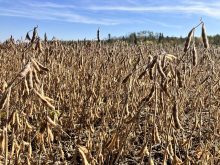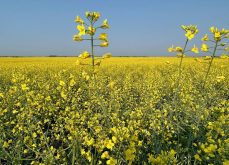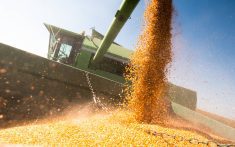MarketsFarm — Canola production numbers for Canada as estimated by the U.S. Department of Agriculture underwent several changes for the 2022-23 and 2023-24 crop years.
The data for Canada was among the estimates USDA’s Foreign Agricultural Service (FAS) put in its monthly report, Oilseeds: World Market and Trade.
The FAS dropped its production estimates on Canadian canola, with that for 2022-23 going from 19 million in the August report to almost 18.7 million, in line with Statistics Canada’s production report issued Aug. 29. Output for 2023-24 was cut from 19 million tonnes as well, to 18.2 million, while StatCan forecast 17.56 million tonnes.
Read Also

Canadian cattle herd sees first annual increase since 2018
The Canadian cattle herd was larger on January 1 than it was one year prior — the first year-over-year increase since 2018, Statistics Canada reported on Friday. Hog inventories were down. Sheep and lamb inventories rose.
One set of numbers that increased came with 2022-23 exports, which the FAS raised from 7.5 million last month to now 7.95 in September. But 2023-24 exports were cut from 8.4 million to 7.9 million.
Domestic use saw declines as well, with that for 2022-23 going from 11.32 million in the August report to 10.71 million. That for 2023-24 was trimmed from 10.88 million tonnes to just under 10.71 million.
Another increase came for the 2022-23 carryout, which the FAS raised from 1.2 million tonnes to 1.51 million. Ending stocks for 2023-24 also rose, from August’s estimate of nearly 1.03 million to 1.2 million.
StatCan is set to publish its updated production outlook on Thursday (Sept. 14), which takes the country’s crops as of Aug. 31. Its final production outlook, based on farmer surveys, will be released in December.















